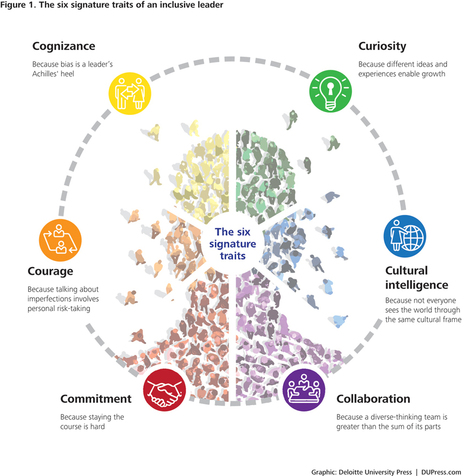In brief, short bursts, fear can be useful and powerful. Fear is distinguished from anxiety in that it indicates an immediate threat that can be responded to. In the shared past of the human species, the threat often took the form of a natural threat. The release of energy at the end of a brief encounter was a critical part of returning to healthy functioning. Now, unfortunately, the concept of leadership at many organizations has been clouded by perpetual fear. Fear arises throughout an organization when humane concerns are sacrificed to achieve short-term profit goals at the expense of team members and the future. Fear spreads unconsciously in response to an entirely profit-oriented environment and fear’s effects are usually not questioned by those who suffer from them.
A fearful, ego-centric view of business supplants true leadership in favor of focus on “managing” people as if they were unruly and untrustworthy. Fear-based management abides in the belief that those in an organization “would never get anything done” unless they are continuously threatened. Rather than resolving a problem, this attitude creates one: Lack of trust leads to lack of productivity and lack of engagement caused by acute but unspoken consciousness of oppression. Relentless focus on individual gain in the form of money and promotion worsens this issue not just in America, but worldwide. This results in limitation of growth for our communities or organizations and invests all leadership within one personality. When the leader departs, the “machine” left behind disintegrates: As a limited “physical and mental” machine, it cannot generate integrity from its ego-based approach to external data. So long as it is believed that the enterprise can aspire to no benefit other than profit, there is no basis for evolution. Under such conditions, everyone associated with an organization is shackled by a self-interest viewpoint. The effects of this on the psychology of the group are obvious.
The benefits of a Value Based Leadership One antidote to the fear basis has been values-based leadership. This is one important step away from the mechanical conception of enterprise and toward a concept that encompasses physical, emotional, mental, and spiritual dimensions. Instead of seeing work as a job, an evolution takes place wherein it can be understood as a career. The transformation from a fear basis to a values basis is a profound one. Leaders in such an enterprise focus on the long term and their goals naturally serve the community in which the enterprise is embedded. “Win-win” opportunities emerge more naturally than before because all of the different constituencies and communities impacted by a given enterprise have something to gain rather than being locked in a web of mutual exploitation for the gain of the few.
A sense of social obligation creates a resilient basis for fulfillment among employees and customers while imbuing the entire community with shared understanding of its role in the ecological environment. Under the conditions of this awareness stage, the organization is empowered with its own identity separate from the leadership. It generates anabolic energy that motivates every member to undertake evolution in their values, beliefs and assumptions. The business is no longer chained to the tyranny of external data and is free to evolve on the basis of internal data and values. In an individual, we might call this self-knowledge. As the enterprise develops its own soul, leaders no longer focus on fear but on positive feedback, collaboration, and shared values. It focuses on transformation among individuals using an outsider perspective. Overall, there is a balance between “hard” and “soft” skills in the workplace environment just as there is in life. When all these elements are achieved, it then becomes possible for any enterprise to reach the final and highest stage.
How Bringing More Love in Leadership Enables Individuals and Organizations to Reach their Full Potential Another way to approach any enterprise-level evolution is love-based leadership. In this final evolution, the enterprise supports society and continues to deepen its understanding of the matrix of needs and wants represented by customer and employee.Environmental and community stewardship is made a priority and there is an understanding of the continuum between the enterprise and what might appear to be “outside” of it, including the community at large. Work is now perceived as a mission: Because of this, it is possible to champion a higher level of energy and consciousness within the organization.
There is no more basis for narrowing of perspectives, so it is understood that what is done within the enterprise can freely benefit the local area, the nation and the world at large. Profit becomes more easy to obtain in this final stage of transformation because there is a wider recognition of the organization and its ability to provide love experiences. Members of the community and of the enterprise come to recognize that there is no duality or conflict between profit, internal benefit and the greater good: In fact, the apparent conflict between these things is an illusion fostered by a fearful environment. At this elevated level of energy and consciousness, profit derives from the activities of individuals acting in a harmonious concert with one another. The enterprise becomes the heart of a values-centered mission for each person involved — and it provides a structure that anchors each person to the core values of love and trust. This allows each employee to reach fullest potential in the context of a specific approach to generating value for all of society. One can think of the arrangement of energy and consciousness displayed here as a “spiritual spiral” where the enterprise is at the core and the individuals within it are constantly growing, nourished and reaching out further and further toward the most distant elements of the environment that are impacted by their work. In this state, the energy of the physical, mental, emotional and spiritual poles of human identity will all be fully activated. Everyone can benefit from this transformation by continuing to displace individual egos and seeking ways to express and achieve love more highly in a service orientation. Likewise, the world as a whole can benefit as the principles of this consciousness transformation ripple through similar and interconnected enterprises, further reducing the burden of fear.
Via
Belinda MJ.B



 Your new post is loading...
Your new post is loading...




















